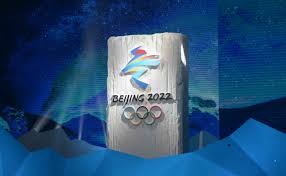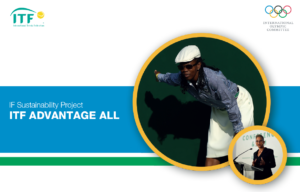
This toolkit is designed to support young people advocate for and effectively contribute to the development of quality physical education (QPE) policy. Youth organizations and other civil society actors who work in youth engagement and/or education, physical activity and sport and who are not familiar with policy advocacy may also find the content useful.
This toolkit offers general principles for successful policy advocacy that can be adapted based on what best suits your national context and specific policy development processes. You will find sections presenting the value of youth engagement in policy development, tried and tested techniques to inspire impact-oriented advocacy strategies and practical checklists to navigate physical education (PE) policy development processes.
The content of the toolkit is particularly relevant for sport and QPE policy advocacy as it contains specific data on the benefits of investing, subject-specific resources and concrete examples from the QPE policy revision project. The ideas and strategies outlined can also be used to support youth engagement in the development of overlapping policy frameworks e.g. health, education, gender equality.
Toolkit users are encouraged to take an inter-sectoral and intersectional approach to PE policy advocacy. Coalition-building across sport, education and health sectors will help pool limited capacities and ensure a coherent national vision in terms of policy design, commitments and budgeting. Inter-sectoral coherence will also maximize impact at the local and national levels.
The toolkit draws directly on the findings of UNESCO’s Quality Physical Education Policy Project. You can learn more about the project on the dedicated webpage.
Youth were key stakeholders in the national policy revision exercises carried out within the framework of the QPE Policy Project. The project evaluation highlighted the key contributions of inter-sectoral partnerships and participatory policy development processes in the elaboration of robust, inclusive and impact-oriented policy documents.





2022 Winter Olympic Games: Beijing air pollution fears raised in new report
Athletes competing at next year’s Winter Olympics could be doing so in potentially hazardous, polluted air, a new academic study says. The report, to […]



SportWorks / The Sustainability Report
Sustainability is now a mainstream topic for any major industry or organisation that wants to be better prepared for the future. This is even more applicable in the current global context. In response to that scenario, The Sustainability Report has been a platform where the sports industry can learn about sustainable leadership, innovation and strategy.
To open our SportWorks TALKS – The Sustainability Leadership Series, we invite Matthew Campelli, he draws on numerous interviews and research to make the case for sustainable development as an essential upgrade for the sports industry. Can a genuine focus on sustainability enhance sport as a product for all of its key stakeholders?






The postponed 2020 Finals of the Billie Jean King Cup will see women share the largest annual fund in women’s team sports equalling the amount awarded in the men’s competition.
However, whilst the pay-gap in elite tennis is closed in terms of prize money and tennis performs well in terms of global participation with 47% female participants, significant off court challenges remain: 20% of coaches and 22% of certified officials are women, and female representation on ITF’s board sits at only 18%.
A 2020 ITF leadership survey highlighted the importance of female role models as one of the most important factors influencing women as they develop their careers. With the goal of increasing the number of women on and off the court, including those in decision making and leadership roles, ITF established the Gender Equality in Tennis Committee (originally called the Women in Sport Committee) in 2017 chaired by USTA president and ITF Vice President Katrina Adams. The following year, with the support of the Foundation for Global Sports Development (GSD), the Advantage All programme was launched including enhanced funding for workshops, education and professional development for up and coming female leaders, including coaches and officials.
BENEFITS
• Having a gender equality strategy establishes clear objectives and targets for an organisation and its stakeholders to advance gender equality.
• The development of female leadership facilitates sustainable change in closing the gender gap and achieving equal representation.
• Ensuring equal opportunity in sport maximises commercial opportunities.
Click here to download the case study


ViacomCBS commits to Climate Action in Sports
The company signed the United Nations’ Sports for Climate Action Declaration ahead of the 2021 Super Bowl.Ahead of Super Bowl LV on Sunday, Feb. […]


The UCI reinforces rider safety and its commitment to sustainable development
The Management Committee of the Union Cycliste Internationale (UCI) met on 3 and 4 February. With travel restrictions still in place worldwide because of […]



IFF’S cooperation with MyClimate – Interview with MyClimate’s Head of Marketing Kai Landwehr
The IFF has been working with MyClimate for six months. During this time the IFF has continued to develop its sustainability programme and has facilitated discussions […]


U.S. Polo Assn. to Launch USPA Life Sustainability Initiative
WEST PALM BEACH, Fla. (February 3, 2021) – U.S. Polo Assn., the official brand for the United States Polo Association (USPA), is offering a sneak peek into […]



FIA Carbon Calculation Tool
The Fédération Internationale de l'Automobile (FIA) launched an online carbon calculation tool for their own federation as well as for their stakeholders, in line with the UN’s Sustainable Development Goals (SDGs), and following the implementation of the FIA Environmental Accreditation Programme.
The ‘FIA carbon calculation tool’, provided by Global Climate Initiatives, has been specifically adapted to the motorsport industry and will allow any of the accredited stakeholders to calculate their carbon footprint. After the calculation, FIA can step in and support the users in designing a reduction plan to take concrete actions to reduce their emissions.
The tool will serve as a supportive option to the FIA Environmental Accreditation Programme and is planning to, in its first year, assist approximately 40 Three-Star level Accreditation stakeholders gain insights on their footprint and plan for carbon neutrality.
Benefits:
By obtaining insights on the environmental performance of their stakeholders, FIA can cater to them in order to:
• Prrovide them with support in understanding their carbon footprint and becoming climate neutral.
• Maximise the impact of the programmes by defining priority areas where more attention and education is needed in order to reduce emissions.
• Establish benchmarks and goals for motorsports.
Click here to download the case study




The online carbon footprint calculation tools enable you to calculate your personal or business carbon footprint.
The Carbon Calculator follow the methodology outlined by the UK Government, and currently using the "Greenhouse gas reporting: conversion factors 2020".
The calculator uses emissions factors which take account of all greenhouse gases (i.e. CO2, N2O, methane etc.) released by the activities, with the results presented in units of metric tonnes of CO2 equivalent (CO2e).
In most cases that means the results will be slightly higher than if calculating CO2 only. The calculations of emissions from fuels are Scope 1, meaning the direct GHG emissions from the combustion of the fuels.
The calculations do not include the Well to Tank (WTT) Scope 3 Emissions associated with extraction, refining, distribution, storage and retail of the fuels.
The following elements can be measured in the calculator:
- House/Buildings
- Flights
- Car/Motorbike
- Bus/Rail
- Secondary Footprint (this is a measure of the emissions caused through the manufacture, delivery and disposal of products and services we buy. Most carbon footprint calculators ignore this part of your footprint, but without it you may risk under estimating your total footprint quite considerably).



